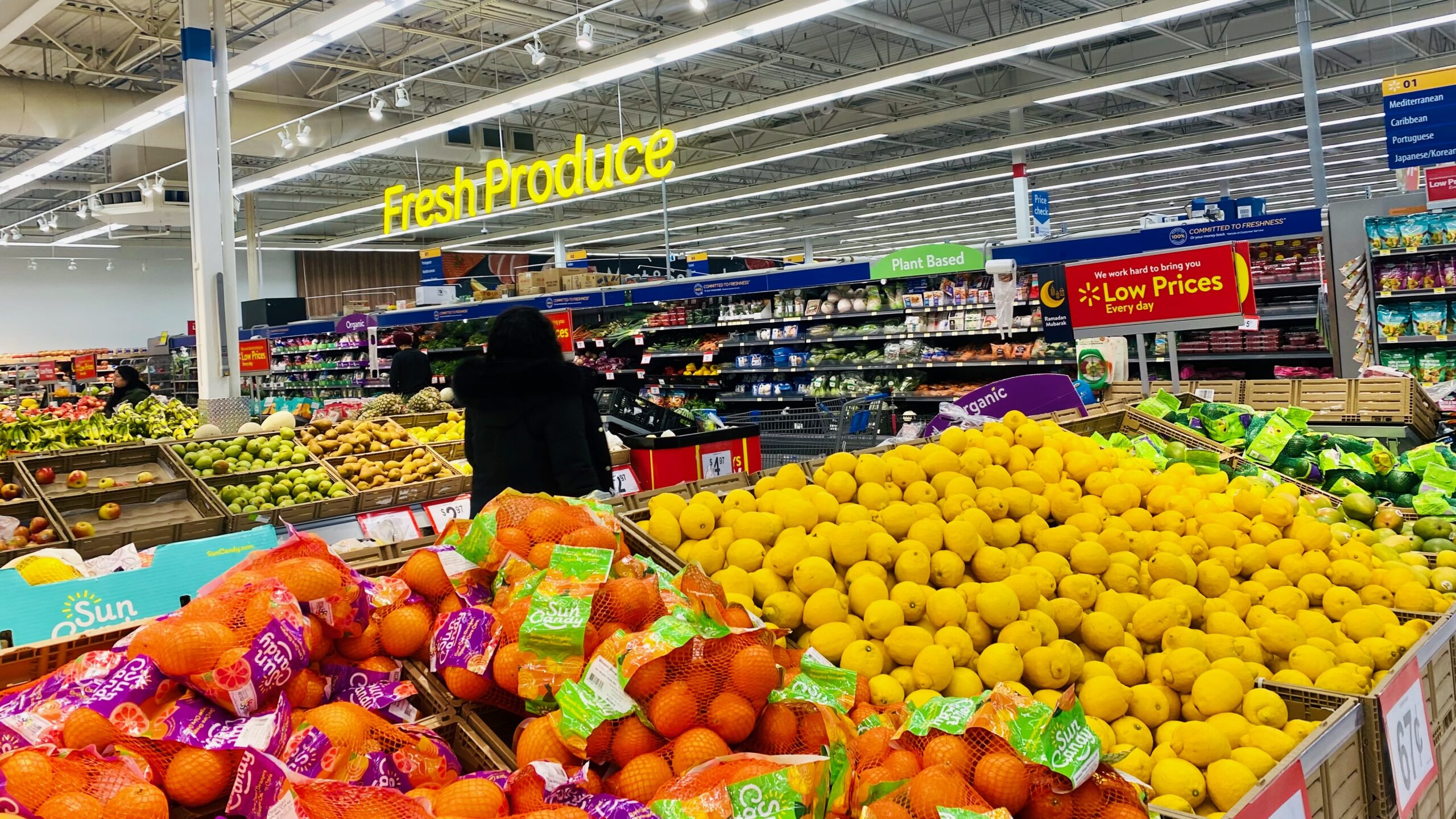Grocery costs in Canada continue to rise as people continue to feel worried about the affordability of food.
According to Statistics Canada’s most recent data, grocery prices increased by 1.4 per cent in April 2024 over the same month the previous year, bringing overall inflation to 2.3 per cent.
Inflation, however, has slowed from a high of 8.3 per cent in March 2023, StatCan numbers show. Inflation peaked at 10.4 per cent in January 2023.
University of Guelph food economist Mike von Massow said two main causes of price increases are disruptions in global supply systems and climate change.
The data from the university’s Food Focus team demonstrates how rising production and distribution costs have directly affected the price of fresh produce and meat. Massow said.
“Over the past three years, grocery prices have gone up by an unbelievable 21.4 per cent, highlighting the huge effect on Canadian households,” Massow said. Despite easing inflation rates, he said he thinks these price rises will probably continue.
Toronto dietitian Marissa Alexander offers practical plans that people can use to manage these increased expenses.
“Selecting foods high in nutrients and searching for less expensive options, such as plant-based proteins and seasonal fruits and vegetables,” she said.
“Meal planning and wise shopping can really help stretch your food budget, highlighting the significance of choosing healthful options while saving money,” Alexander said.
A food goal for Canadians is to shop more wisely, she said.
The 2024 Canada’s Food Price Report by the Agri-Food Analytics Lab at Dalhousie University, showed that the majority of the 5,521 people it surveyed are worried about food affordability. It expects prices to rise between 2.5 per cent to 4.5 per cent this year.
“The average family of four is expected to spend $16,297.20 on food in 2024, an increase of up to $701.79 from last year,” the report said. “The most significant increases range from five per cent to seven per cent in the categories of bakery, meat, and vegetables.”
And restaurant costs are expected to rise three to five per cent this year, according to the report. Just 29.5 per cent of the respondents who took the survey said they were satisfied with their eating experiences in relation to the amount of money they had spent on meals in the previous year.
Furthermore, 68.2 per cent of Canadians reported that portion sizes had decreased from a year earlier. These results highlight the difficulties that both companies and customers have in adjusting to the effects of inflation on eating out.
Priya Arora, a second-year student at York University, thought she could prepare a meal plan for a week and would be able to save a bit by using cheaper products.
“I started eating the same thing for days so that I could stick to my monthly budget, I realized it was wrong and shouldn’t play with my health to save a few bucks,’ Arora said.
“When I newly came to Canada back in September 2022, I remember things were different back then and all of a sudden the food prices started touching skies, and it is really hard for international students to manage everything,” Arora said.
Massow said a complex strategy including communities, individuals, and policymakers is necessary to reduce rising food prices as the nation navigates these volatile economic times.
“To guarantee that everyone can afford the goods they require, it will be essential to establish sustainable practices and promote local food projects,” he said. “There’s potential for a more stable and accessible food future for everybody with sustained attention to detail and calculated action.”

